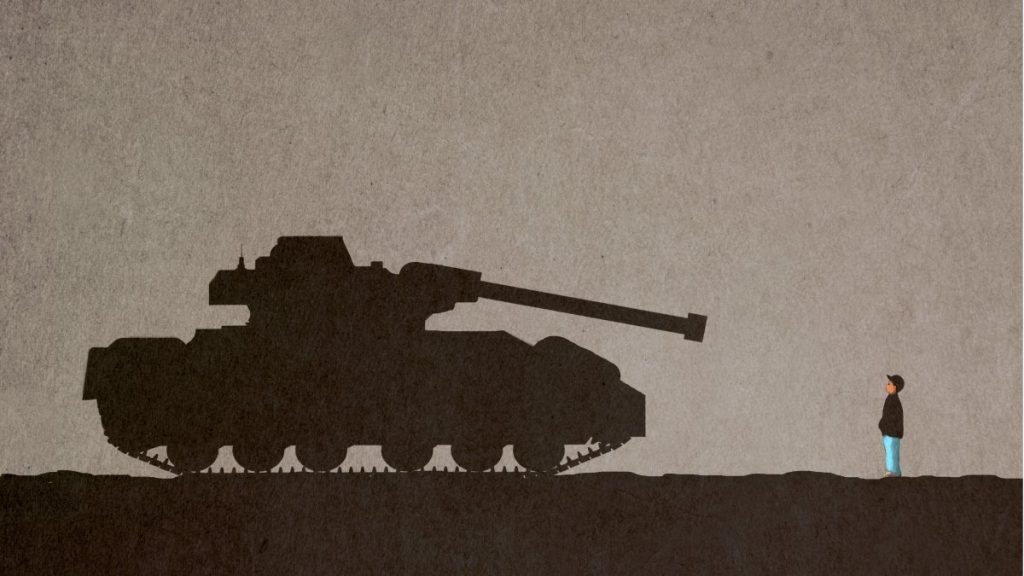The notorious political theorist, Hans Morgenthau, once forewarned that “all nations are tempted – and few have been able to resist the temptation for long – to clothe their own particular aspirations and actions in the moral purposes of the universe.” His words, once frowned upon for their shrewd observations of political deceitfulness, have become the norm. The global order, which for decades clung, albeit tenuously, to the principles of human rights, diplomacy and international law, is unraveling at breakneck speed. We are witnessing the abrupt desertion of the rule of law and the unruly collapse into an era of unrestrained hostility. From the rise of fascist populism to the normalization of nuclear brinkmanship, the world is tipping toward a perilous abyss.
The most alarming indication of our global unraveling is the escalation of global conflict. The return of large-scale warfare, once considered a relic of the 20th century, is now a present-day reality. Russia’s full-blown incursion against Ukraine in 2022 exhausted the misconception that major land wars were no more. Meanwhile, the Middle East has become a tinderbox, with Israel’s expanding military campaigns in Gaza, Syria and ongoing clashes with Hezbollah threatening to ignite a regional conflagration. In the Pacific, China’s military exercises around Taiwan and the U.S. overtures to contain China have grown increasingly incendiary, which clearly signals a preparedness to use force. North Korea is forcefully asserting its aggressive missile policy against Japan, which is becoming increasingly impatient. The propensity to settle even minor disagreements between rival nations is now increasingly resolved through force, rather than negotiation.
For the past several decades, major global powers avoided direct conflict, opting instead to fund and arm proxy forces or use military coalitions to feign acceptability and respect for the rule of law. That restraint is disappearing. The U.S. and China are now locked in a competition that is no longer confined to trade disputes and diplomatic posturing – it is edging toward direct military confrontation. The South China Sea is becoming the flashpoint, with U.S. naval operations colliding with China’s territorial claims. Simultaneously, Russia’s overt aggression against Ukraine has exposed the fragility of the post-Cold War security architecture. The era of covert operations and deniable interference is giving way to explicit, open conflict between global powers, raising the stakes and the risks of miscalculation.
The most horrifying significance of this deterioration into lawlessness is the renewed specter of nuclear war. The once-distant threat of atomic annihilation is again a plausible scenario. Russia’s repeated nuclear threats against the West, coupled with its withdrawal from arms control treaties, have made clear that an unthinkable nuclear conflagration is becoming more likely. Tensions between India and Pakistan, both nuclear powers, remain on a knife’s edge over Kashmir. Meanwhile, North Korea’s relentless missile testing, including intercontinental ballistic missiles capable of reaching the U.S., makes it clear that the international community has lost its ability to deter rogue regimes. The once-unthinkable notion of nuclear war is now a disturbingly real possibility.
Most chillingly, respect and adherence to the rule of law, both within states and in the global order, are being methodically undone. Multilateral agreements and international conventions that once provided a veneer of accountability are being abandoned. The U.S. withdrew from the Paris Climate Accords under the Trump administration, setting a dangerous precedent for major powers to disregard global pacts. The Geneva Conventions, which safeguard the rights of civilians in conflict, are routinely flouted, from the genocide in Gaza, the bombing of hospitals in Yemen, to the ethnic cleansing of Rohingya Muslims in Myanmar. Meanwhile, international institutions such as the World Health Organization (WHO) and the World Trade Organization (WTO) are increasingly dismissed as irrelevant, with nations opting for unilateral action instead.
As a consequence of the erosion of international human rights law and the global order, the de-democratization of both local and global politics is hastening. States no longer feel compelled to disguise their repression, war-mongering or global racketeering; they do so with grotesque bravado. From the deportation of student protesters to the open jailing of dissidents, governments across the world are increasingly unashamed of their disregard for civil liberties. Even in Western democracies, once considered bastions of free speech, we are seeing concerning crackdowns on protest movements. The mass arrests of climate activists and anti-war demonstrators reveal a growing impatience with dissent. The age of soft power sophistication and finesse is waning; unrestrained force is once again the tool of choice for states and leaders alike.
The world is not simply returning to a pre-globalization era – it is descending into something far more dangerous: a fractured, lawless order where power reigns supreme and a Machiavellian dystopia is the norm. The failure to compel the rule of law has led to unrestricted bellicosity, with nuclear threats, human rights abuses and war crimes becoming increasingly normalized. The televised genocide in Gaza could not accentuate this fact any further. Thus, Morgenthau’s warning no longer reads as an academic critique – it is a dire reflection of the world we now inhabit. The global community must decide whether it will continue to watch this moral deterioration, apathy and barbarism, or whether it will strive to reestablish the principles of law, justice and human dignity before they become vestiges of a bygone era.


